By: Becca Schwender, MedStar Health Physical Therapist
Welcome to MedStar Health in Federal Hill! I’m Becca Schwender, physical therapist and member of the race medicine team. For those who ran the 2019 Marine Corps Marathon, you are well aware how hot weather can change your race day plan. Training through hot and humid summer months requires planning ahead to make the most of your run.
Clothing:
Choose moisture-wicking apparel to absorb perspiration, allowing your body to regulate your temperature.
Light color clothing will reflect the sun’s rays. Slightly loose fitting clothing will be breezier on your run.
Timing:
Plan ahead to run during the coolest times of the day. During the summer, early mornings and late evenings are optimal choices.
Temperature must be considered along with humidity. Higher humidity means more moisture in the air, which prevents moisture from evaporating as efficiently from your skin. Your body will retain more heat in humid weather.
Safety:
The advantage of running in the morning is the lower temperature. However, the rising morning sun may also create a glare that prevents a driver from seeing you.
If you are running in a high traffic area, stop before crossing an intersection to confirm that driver sees you.
Pace:
Your pace can also be affected by humidity and heat. When running at temperatures above 70 deg Farenheit, expect to slow your pace.
Instead, rate your run on perceived effort. On a scale from 0-10, how hard are you running? A long run may be a 4-5/10 effort, while a speed work out may be an 8/10 effort.
You can also modify your training program by scheduling harder efforts on the coolest weather days for that week.
Hydration:
Hydration is important to maintain.
Drink to thirst without excess water consumption. Y
our urine should be light yellow and not clear. Consuming too much water can lead to stomach distress during your run.
Excess hydration can also lead to relative under nourishment by diffusing available electrolytes. Include a warm down phase following your run.
Avoid stopping abruptly after a run as that can cause you to faint.
I hope you enjoy training and racing this summer. MedStar Health is committed to being with you before, during, and after your race. If you are experiencing pain related to running, contact a running medicine specialist at 888-44-SPORT.


